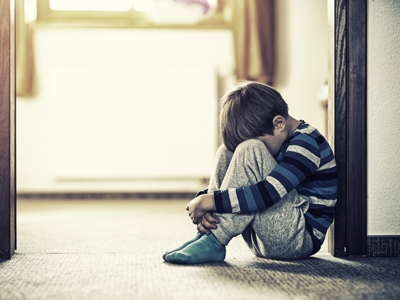
Legal Brief: Deprivation of Liberty under the Inherent Jurisdiction
Leigh Day specialise in children’s rights and the Court of Protection, often supporting the needs and safeguarding the rights of some of the most vulnerable of society.
Posted on 26 June 2023
One of the thorniest issues in this area relates to children, particularly children that are the subject of deprivation-of-liberty orders. There are increasing concerns expressed by professionals working with children and senior members of the judiciary that the current legal framework is doing little to protect society's most vulnerable.
Deprivation of Liberty Orders
Article 5 of the European Convention on Human Rights (ECHR) provides that all individuals, whatever their age, have a right to liberty and security. This means that the physical liberty of any individual should never be deprived in an arbitrary fashion. A deprivation of liberty order (DoL) is an order authorising restriction on an individuals' liberty beyond any restrictions that would normally be imposed on a comparable individual, or child of the same age.
The reasons for these restrictions vary however, they are generally for the purposes of welfare, youth justice and/ or mental health reasons. This may include the deprivation of liberty for children who display severe self-harming or aggressive behaviours, individuals who are at risk of sexual exploitation or individuals with autism spectrum disorders (ASD) who require varied levels of supported living.
A deprivation of liberty can be authorised via the following methods:
- via the Court of Protection;
- the statutory Scheme under s 25 of the Children’s Act;
- the Inherent Jurisdiction of the High Court.
The latter two methods are used primarily for children. The children that are subject to DoL orders are often placed in secure children’s homes and imposed restrictions may include day and night supervision, locked windows and doors, supervised and restricted use of phones and internet, supervised contact with family and friends, and the use of physical restraint.
The law
The law defines the circumstances in which a court can authorise a care plan that deprives a child or young person of their liberty by placing them in secure accommodation.
Regulations provide that a children's home must only be used as secure accommodation if it has been approved for that purpose by the Secretary of State for Education (in England) or by the Welsh Ministers (in Wales). The children's home must also be registered with the relevant regulatory body (e.g. Ofsted in England).
Nevertheless, the number of secure placements in England and Wales has declined over the past two decades, in particular with the closure of 16 secure children’s homes since 2022.
The lack of provision of secure accommodation has meant an over-reliance on authorising DoL orders via the Court's inherent jurisdiction. Without the availability of secure accommodation, local authorities are unable to apply for secure accommodation orders and must instead seek orders from the High Court under its inherent jurisdiction to place children in unregistered accommodation, which is not subject to the same safeguards a secure accommodation. Unregistered accommodation can vary from semi-independent placements to rented flats, holiday homes or even caravans. At times, the Court can be asked to authorise highly unsatisfactory arrangements, as there are no other options available.
Inherent Jurisdiction
The inherent jurisdiction is a means of providing protection for children whose welfare requires it and when the statutory regime under s25 CA cannot be used. When the High Court authorises a deprivation of liberty under its inherent jurisdiction the child may be detained in other accommodation such as an unregistered or an unregulated placement. This means the child won’t have the safeguards and protection offered by the statutory regime.
National Deprivation of Liberty Court
In July 2022, a National Deprivation of Liberty Court was launched at the Royal Courts of Justice as a 12-month pilot, to deal with all new applications seeking authorisation of a deprivation of liberty under the court’s inherent jurisdiction. The Nuffield Family Justice Observatory monitored the new court and in a recent study noted that despite the court being used as a 'last resort' measure, there was a 462 per cent increase in DoL applications under the inherent jurisdiction between 2017/2018 and 2020/2021. According to the data from the Ministry of Justice, between July and September 2022, 46 secure accommodation order applications were made to the family courts – in the same period, there were 348 applications for DoL orders. As a result, the use of the court's inherent jurisdiction far outweighs the number of applications issued under the statutory scheme.
The following issues have arisen as a result of this over reliance on the court's inherent jurisdiction.
Use of Unregulated Placements
The Nuffield Family Justice Observatory identified that in nearly half of all applications to the National Deprivation of Liberty Court, 45.6%, children were being accommodated in unregistered settings such as semi-independent living placements, or holiday rentals. An unregistered setting is not monitored by either Ofsted in England or the Care Inspectorate Wales. This leads to a lack of statutory oversight required in order to secure a child’s wellbeing. A lack of oversight is particularly concerning given the varied emotional and learning disabilities and self-harming behaviours of the children being placed in these settings.
Distance of Placements
Due to the severe shortage of placements in England and Wales, the children are often likely to be placed far from home. In 2019/2020, 74% of children in youth custody were placed more than 24 miles from home.
This becomes particularly problematic when children are placed in cross-border accommodation in Scotland. There they do not have the same protections or access that is provided to Scottish children within the Children's Hearing System, nor is there any involvement of Scottish public authorities to assess whether the placement is meeting the child's needs.
Vulnerability
Furthermore, the issues presented above are further compounded when we consider the extreme vulnerability of children subject to DoL applications. Most of the children have experienced significant adversities and trauma throughout their childhoods, including physical or sexual abuse and neglect, rejection and bereavement.
The study identified, “in almost all cases (95.2 per cent), there were multiple concerns that led to the DoL application being issued. These included concerns about the child’s behaviour that were considered a risk to others, for example because of physical or verbal aggression (69.2 per cent); mental health or emotional difficulties (59.1 per cent); and self-harm (52.4 per cent). Some children had physical or learning disabilities (33.7 per cent), and some were at risk of criminal or sexual exploitation (33.2 per cent).”
The recent media coverage of a 12-year-old girl in a windowless, locked hospital room with all communication conducted through a hatch demonstrates the visceral vulnerability of these children suffering due to the shortage of secure accommodation placements. Other children have been placed in caravans, holiday homes and even tents.
Senior members of the judiciary have in recent times been critical of the shortage and the inaction of the Secretary of State. Lord Macfarlane in Re X (Secure Accommodation: Lack of Provision) (2023) stated,
“The lack of secure placements is long-standing and chronic. My view, expressed during the hearing, was that the stance taken by the Department for Education, to the effect that it was not its problem and was the responsibility of individual local authorities, displayed a level of complacency bordering on cynicism. It was, I observed, shocking to see the Department for Education seemed to be simply washings its hand of this chronic problem.”
Furthermore, in a Supreme Court ruling in the matter of T (A Child), Re [2021] UKSC 35, a case concerning a vulnerable teenager who was placed in a unit which was not a registered children’s home, nor an approved use of accommodation, in order to deprive her of her liberty, the five Supreme Court justices permitted the placement of the teenager in the placement. Nevertheless, they expressed their grave concern over the lack of provision.
Lord Stephens stated, there is an “enduring well-known scandal of the disgraceful and utterly shaming lack of proper provision for children who require approved secure accommodation”. He went on to comment that “the appropriate permanent solution is the provision of appropriate accommodation”. He stated, “I add my name to the list of judges who have called attention to this issue which is a scandal containing all the ingredients for a tragedy”.
Lady Black also articulated her “deep anxiety” at the lack of provision in the childcare system and stated, “it is fortunate that the inherent jurisdiction is there to fill the gaps in the present provision, but it cannot be doubted that it is only an imperfect stop gap, and not a long term solution.”
Given the worrying statistics and the criticism expressed by senior members of the judiciary, an increase in the provision of secure accommodation must become a priority for this government. Increasing the availability of placements so as to safeguard the wellbeing and protection of these children is urgent and will require the cooperation and commitment of governing bodies at local and national levels.




